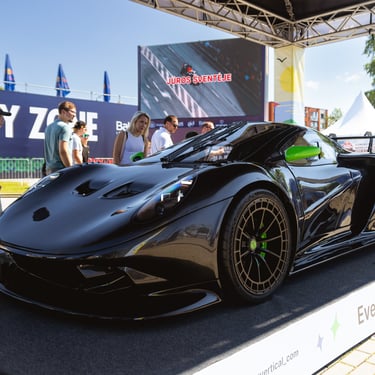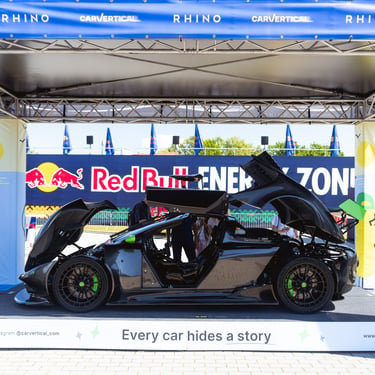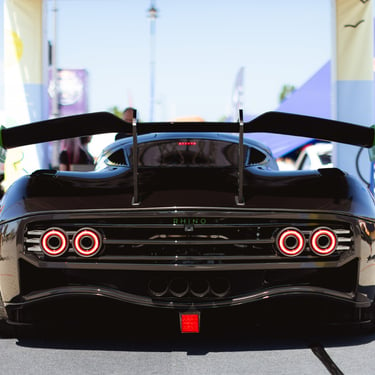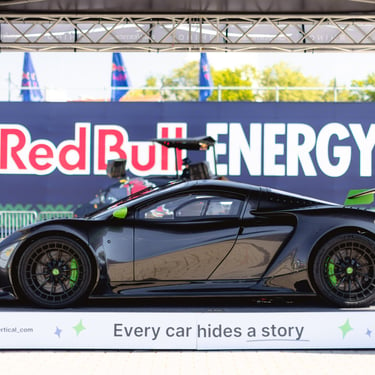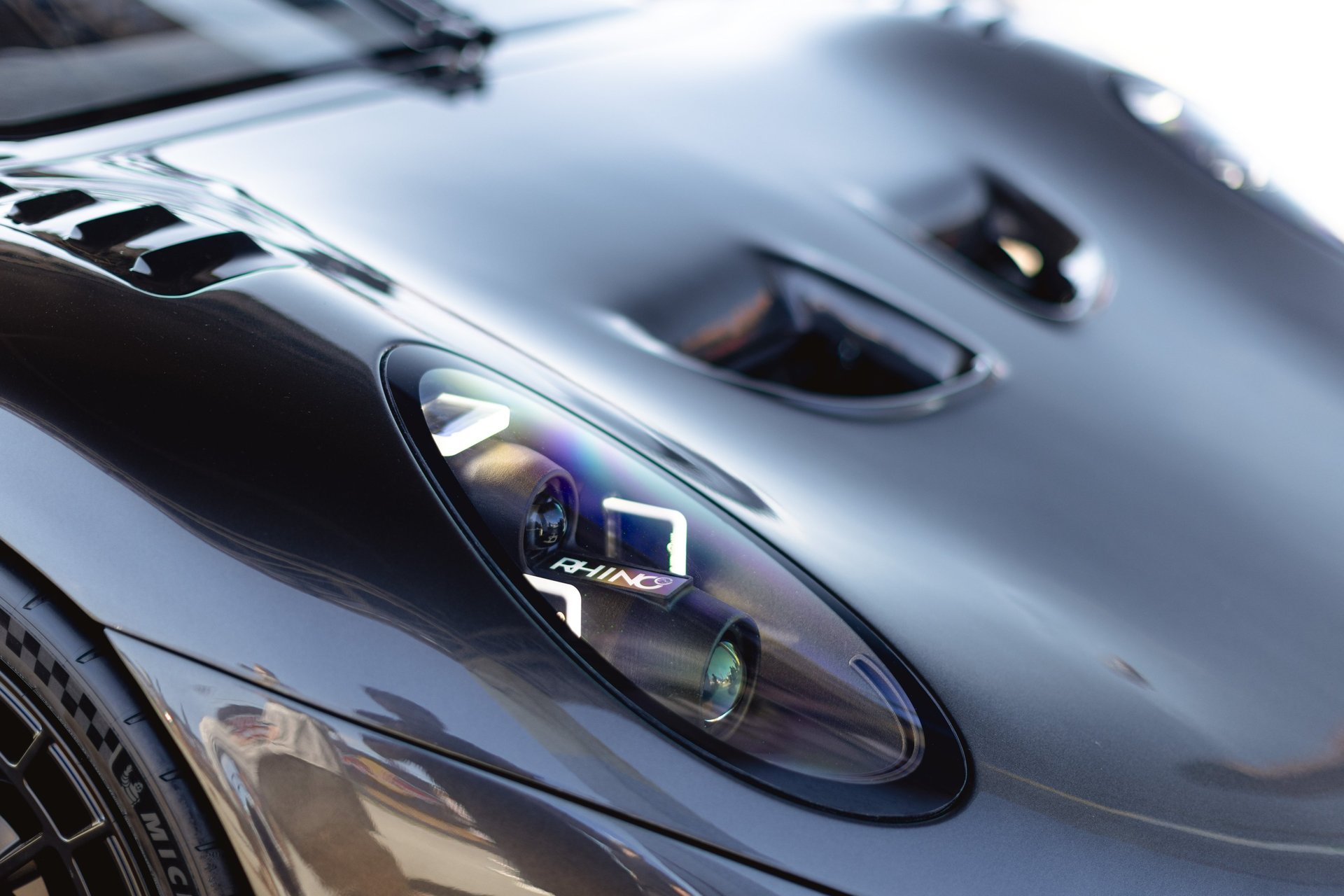
Production-Ready Rhino RR01 Supercar Unveil
Lithuanian Engineers Unveil Production-Ready Rhino RR01 Supercar at Red Bull Showrun in Klaipėda
Eighteen months after the debut of the Rhino RR01 prototype, the production-ready version of Lithuania’s first supercar made its public appearance at the Red Bull Showrun in Klaipėda, showcased in the CarVertical zone. With redesigned exterior accents, a fully revamped interior, and a new powertrain, the team behind Rhino RR01 has completely transformed the car, replacing 80 percent of its components to make it ready for production. The first customer deliveries are expected by the end of the year.
The Rhino RR01 retains the aggressively elegant silhouette of the prototype but has been re-engineered in nearly every detail. The car now features new headlights, custom-forged wheels, and a handcrafted interior trimmed in suede. It includes a Formula 1-inspired steering wheel designed in Kaunas and an infotainment system supporting Apple CarPlay. Beneath its fiberglass rear section sits a new 5.0-liter Ford V8 engine paired with a 7-speed Porsche PDK transmission. The two-seater weighs just 1,200 kilograms and the fully equipped model is priced at approximately €150,000.
From a Sailing Joke to a Global-Ready Supercar
The Rhino RR01 is the first fully Lithuanian-developed supercar with its monocoque, body, chassis, and interior all engineered in Kaunas. The project began four years ago as a lighthearted idea during a sailing trip when founders Vėjas Pajarskas and Julius Garnelis joked about building a car. The joke soon turned serious, and two years ago the pair unveiled the first prototype, a raw unpainted body shell with no interior but fully drivable and powered by a 5.2-liter Audi V10 producing 440 horsepower.
The reveal aimed to test the market’s appetite for a component-based “kit car” supercar. The response exceeded all expectations with more than 4,000 inquiries received within 24 hours, overwhelming the small four-person team to the point where they had to disable the order form and switch off their phones.
“People were ready to buy immediately, but we didn’t want to release an unfinished product,” says co-founder Vėjas Pajarskas.
Realizing the project’s potential, the team doubled down, investing in engineering and supply chain solutions. After a year and a half of development, they are now presenting a fully refined, production-ready version of the RR01.
Engineering Evolution: New Powertrain and Greater Comfort
One major challenge was the engine. The Audi V10, while impressive, was costly and only available as a used unit. The team opted instead for a Ford Performance Coyote V8, delivering between 480 and 600 horsepower, supplied as a complete new package.
The original sequential gearbox was also replaced. “Our vision was a weekend car you could also enjoy on track days. A race-spec sequential transmission was thrilling on the circuit but unbearable in the city,” explains Pajarskas. The solution was the Porsche 7-speed PDK, combining performance and usability.
The interior also received a complete overhaul, featuring a hand-built Formula 1–style steering wheel, a screen with Apple CarPlay, an integrated rearview camera, and numerous refinements for usability such as powered mirrors and precision door mechanisms. Racing seats with six-point harnesses remain fixed, but adjustable pedals and steering ensure driver comfort.
Preparing the RR01 for production proved to be the most challenging stage of the project, demanding extensive time and precision. Unlike the prototype, which was a one-off hand-built model, small-series production required the creation of numerous manufacturing forms for the body panels and interior components. In total, more than 60 unique molds were produced, far beyond the typical 10 to 30 molds used in most kit cars, because almost every air intake and interior element was custom-designed. This meticulous approach ensured exceptional fit and finish for the production-ready model.
Interest in the RR01 remains strong globally, with the first units already sold to customers in the USA, Japan, Australia, and Germany. Key markets for Rhino Racing include regions with established kit-car regulations such as the USA and UK, which simplify registration and ownership.
Customization and Pricing
The showcased model costs around €150,000, but the modular nature of kit cars allows significant flexibility. Buyers can opt for pre-owned components to reduce costs to as low as €70,000 or customize with exotic engines and premium materials, pushing the price much higher. Production currently takes about one month per car, with scalability up to 60 units per year.
